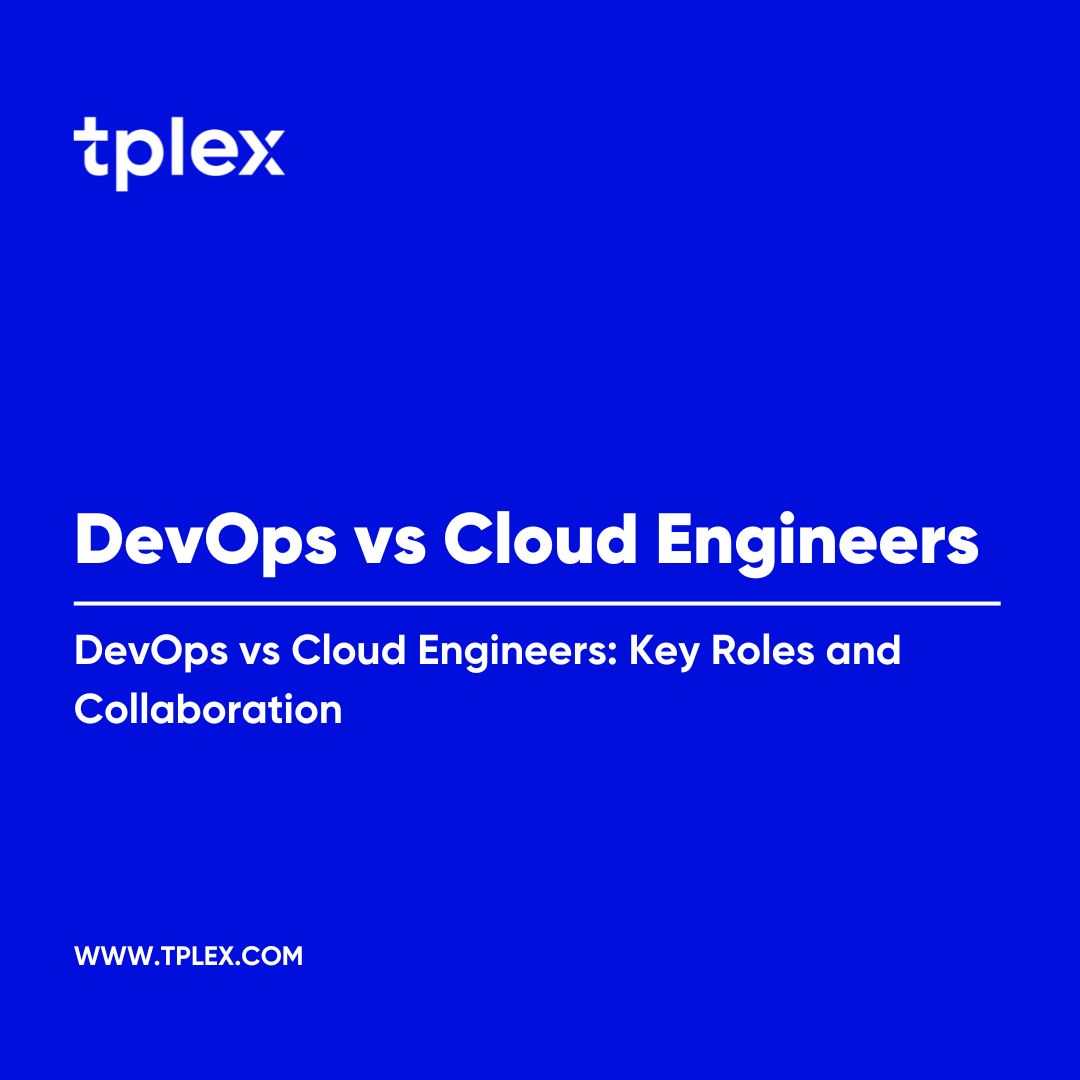DevOps vs Cloud Engineers: Key Roles and Collaboration

In modern software development, the roles of DevOps and Cloud Engineers have become even more important. They allow for serving distinct functions that help make operations highly scalable and secure. Understanding the differences between these is very important for businesses so that they can work in the best way and also maximize efficiency while at it.
Understanding DevOps and Cloud Engineers
The software development lifecycle can be shortened while maintaining high-quality releases by combining development and IT operations, a process known as DevOps (Development + Operations). Workflow automation, CI/CD (Continuous Integration/Continuous Deployment) pipeline management, and accelerating software delivery are the main goals of DevOps engineers. The main responsibilities of DevOps developers include implementing CI/CD pipelines, automating infrastructure provisioning, monitoring application performance and so on.
A Cloud Engineer, on the other hand, has an entirely different purpose. The design, implementation, and management of cloud computing services are the areas of expertise for a cloud engineer. These experts provide scalable, secure, and economical cloud infrastructure by working with platforms like AWS, Azure, and Google Cloud. The key responsibilities of Cloud Engineers include designing and managing cloud architectures, configuring cloud based applications and managing cloud resources and cost optimization.
Key Differences Between DevOps and Cloud Engineers
The one main similarity between the two roles is that they focus on automation greatly. While that is true, the difference in their skillset is much more.
Here are the main differences between DevOps and Cloud Engineers.
- Focus and Responsibilities
DevOps engineers mainly focus on improving the process of building and releasing software in the best way possible. They allow for narrowing the gap between development and the operations teams. Cloud engineers on the other hand focus on designing, implementing and managing cloud infrastructure to support software applications in the best way.
- Skill Set
Pipelines for Continuous Integration/Continuous Deployment (CI/CD), version control systems (like Git), scripting languages (like Python or Bash), containerisation tools (like Docker), monitoring tools (like Prometheus), and configuration management tools are all necessary for DevOps engineers to be proficient in. A thorough understanding of cloud platforms, including networking setups inside these settings, is essential for cloud engineers. Additionally, they employ Terraform and other Infrastructure as Code (IaC) tools to effectively manage resources.
- Scope
Building and administering cloud environments and services is the primary emphasis of cloud engineers’ work on cloud-specific projects. DevOps engineers, on the other hand, work on integrating development and operations processes across several platforms and have a wider reach.
How DevOps and Cloud Engineers Collaborate
Their roles are very different from each other, but they work together to ensure that they can manage infrastructure rather well and also work toward very smooth application deployment. Their collaboration is one of the most important things there is which allows for enhanced security.
- Cloud Infrastructure Deployment
A DevOps cloud engineer works with Cloud Engineers to automate infrastructure provisioning using tools like Terraform and AWS CloudFormation. DevOps engineers integrate cloud solutions into the CI/CD pipeline, ensuring seamless deployments.
- Security and Compliance
Cloud engineers work on security policies, while DevOps works on the security automation. Together, their job is to ensure that all security standards are well adhered to.
- Performance Optimization
Cloud engineers monitor resource usage in the best way to ensure that costs are cut down as much as possible and that performance is analyzed in the best way to make sure that all goals are being met.
- Disaster Recovery
Both teams are available when needed and they also ensure that they provide quick recovery in case there is a chance of failure anywhere. Cloud engineers plan how disaster recovery has to be done and DevOps engineers work on implementing failover solutions.
Future Outlook
All apps do not require a backend, but if your app involved user authentication, then you need a backend system to help you with this. Some options you could consider include Firebase, Node.js, Ruby on Rails and Cloud Servi
In contemporary software development and infrastructure management, DevOps and Cloud Engineers both have essential and complimentary roles to play2. As more and more companies adopt cloud-native architectures and DevOps techniques, there will be a greater need for qualified individuals in these positions. Effective software and infrastructure management requires the fusion of DevOps and Cloud Engineering expertise.
For companies that want to build a solid cloud-native environment, hiring both of these people is important. They both contribute toward ensuring that you get what you want. Despite having different roles and skill sets, cloud engineers and devops engineers are both crucial to contemporary IT operations. Cloud engineers are experts at managing cloud infrastructure, whereas DevOps engineers concentrate on optimising software delivery. By understanding the key differences between these roles and fostering collaboration, organizations can optimize their IT processes, accelerate innovation, and achieve greater business agility.



